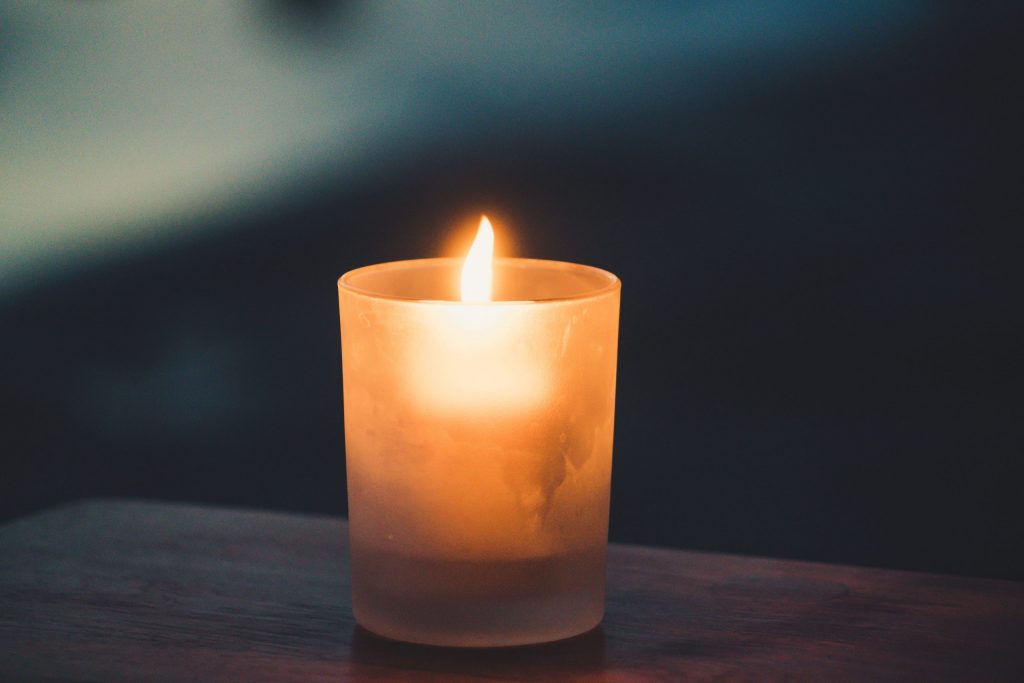Many people go through periods where it seems that they're falling apart, but this is actually part of a larger, deeper awakening process. When in spiritual turmoil, the opportunity for spiritual growth lingers. Fiona Robertson explains.

During dark night of the soul, we find ourselves at a precipice. Behind us is the life we used to live, the persona we have inhabited up until now. In front of us lies the unknown territory of being our real selves.
It is an excruciatingly difficult place to be – an impasse between disconnection and self-abandonment on one hand, and the possibility of annihilation on the other. This is the underbelly of awakening, far removed from the bliss-and-peace fantasy of enlightenment.
The dark night – or spiritual crisis or emergency – is a cry from the depths of our being, a call to reconnect with who we truly are. The call comes because we have inadvertently disconnected from our real selves, living instead through the mask of the adapted self. Inevitably – given the vicissitudes of life, particularly during childhood – we had to become something Other, an acceptable version of ourselves which would pass muster in our families, at school, and in wider society. This innocent leaving of ourselves ensured our survival, but at a perilous cost; the process of adaptation renders us half-dead, our aliveness dampened by the façade we identify as ‘me’. Little wonder that at some time in adulthood we find ourselves at this edge, utterly exhausted and no longer able to keep up the pretence. As someone said to me recently, tears rolling down her cheeks, “I want to be
real.”
However hard we try, we cannot think or spiritualise our way out of the profound, alchemical transmutation that takes place in our soul and psyche during the dark night. When we consider ourselves spiritually adept and emotionally mature, this can be deeply unflattering, or humbling. No matter how far we have come in our spiritual or therapeutic journeys, the dark night is a ruthless taskmaster, cutting a swathe through our inner (and sometimes outer) lives, upending all that previously felt settled and secure. Anything we have depended on to shore up our sense of identity – beliefs, roles, relationships, ideas, practices – may be thrown into turmoil. Our usual strategies no longer work; it can feel as if we have utterly failed, as if all is futile. It is a viscerally painful process of dissolution, as all that we thought we were falls apart, leaving us raw, vulnerable and faltering.
Whatever we unconsciously suppressed or denied in order to adapt resurfaces during the dark night. Even though this is ultimately a process of self-remembering and reconnection, it can feel as if death or insanity are the only possible outcomes. Waves of emotion come and go, despite our best efforts to contain or restrain them. Grief, anger, rage, shame, fear, terror, anguish, guilt; all the feelings we have done our best to numb, bypass or manage now break through into consciousness. All we can do is be present to ourselves as best we can in each moment. It is natural that we resist, kick and scream along the way, because these are the very feelings – the deeper truths about our histories and ourselves – that the persona was created to avoid.
Inevitably, we search for something we can do, some kind of method or practice to stem the flow. After flailing around for a while, we discover that there is no prescription for how to be in the dark night. A glimmer of trust in the process emerges as we learn to become intimate with all the parts of ourselves, including those we have previously disowned or denied. When we are willing to be with ourselves here in the underworld, insights and realisations begin to emerge spontaneously. We have moments of grace and gnosis, moments when we touch the ineffable intelligence of life. We find ourselves on our knees in both supplication and gratitude. This is a radical awakening, the territory of the destroyer-creator goddesses.
As the dark night continues, a profound understanding of our inner landscapes – and of the human condition itself – is forged, a knowing of the language of the mystics, sages and poets. Glimpses of the numinous may be few and far between, but they come as manna from heaven, sustaining us on the dark night road. Along the way, we begin to find crumbs of comfort. Being in the company of those who know this terrain, either in person or in literature, songs or poetry, can ease the way. As we begin to emerge, we taste the sweet fruits of being our real selves, the immensity of the realness for which our souls have yearned.
 Find out more
Find out more
Fiona Robertson is a facilitator and teacher of embodied inquiry who works with people from
around the world, many of whom are going through or have experienced a dark night or
spiritual crisis. She is the author of The Dark Night of the Soul: A Journey from Absence to
Presence and The Art of Finding Yourself: Live Bravely and Awaken to Your True Nature. Fiona
loves acting, is an occasional poet, and lives in Nottingham, UK.

 Find out more
Find out more